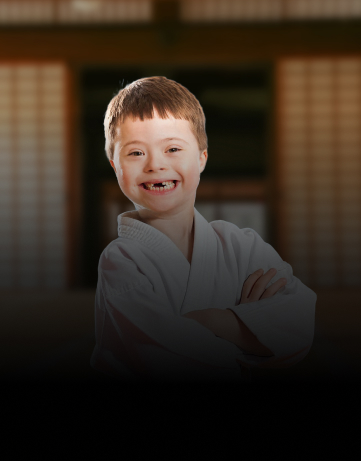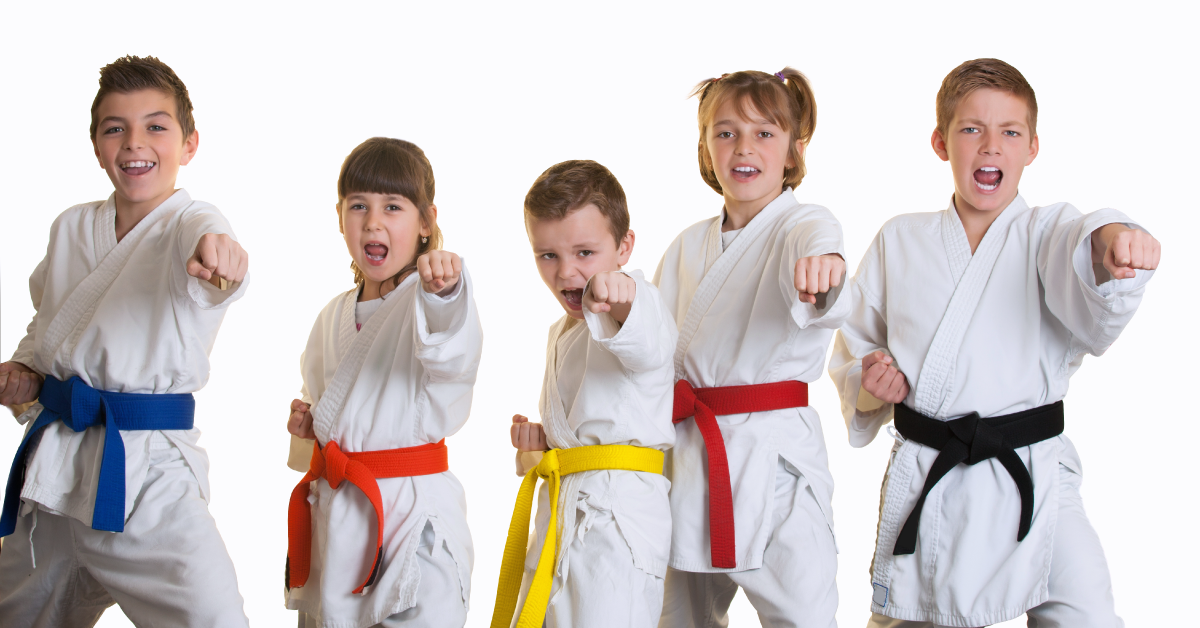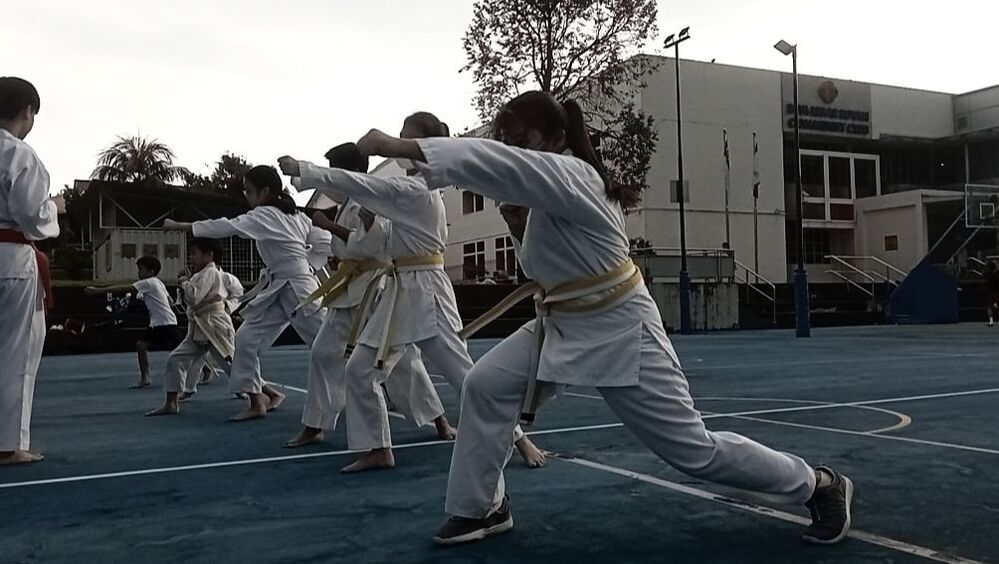Legacy Martial Arts – Building Stronger Kids and Families Through Martial Arts
Legacy Martial Arts – Building Stronger Kids and Families Through Martial Arts
Blog Article
Just How Martial Arts for Children Can Boost Confidence and Self-control in Young Martial Artists
Karate for kids supplies an unique opportunity to build confidence and self-control in young martial musicians. As they find out new strategies and face difficulties, they not only acquire skills however likewise establish a strong sense of self-regard. This structured environment urges them to respect the trip of renovation. Yet exactly how does this training equate into their everyday lives? Discover the deeper connections that make karate even more than simply a sport.
The Importance of Self-confidence in Childhood Growth
Confidence is a crucial building block in childhood advancement. When you support your child's self-confidence, you equip them to deal with challenges, take threats, and share themselves openly. Kids with confidence are more ready to check out new activities and social scenarios, which can result in long-term friendships and beneficial experiences.Encouraging your kid to step out of their convenience zone promotes resilience. They learn that failing isn't the end however instead a tipping stone to success. By commemorating their accomplishments, regardless of exactly how tiny, you help them acknowledge their abilities and worth.In this journey, assistance and favorable support from you play an important duty. Whether it's with praise or merely being present, your involvement increases their self-confidence. As they grow, this self-assurance comes to be a lifelong asset, furnishing them to browse both difficulties and possibilities with a solid sense of self.
How Martial Arts Teaches Self-control and Focus
Martial arts helps you construct discipline and emphasis through its structured training routine. As you exercise mindfulness throughout each session, you'll find out to focus better both on and off the floor covering. Plus, setting and attaining goals in martial arts reinforces your capacity to remain fully commited and attentive.
Structured Training Program
While you participate in karate training, you'll quickly uncover how a structured regimen instills self-control and emphasis in young practitioners. Each class complies with a specific style, including workouts, technique method, and sparring. This consistency instructs you to appreciate the process and devote to improvement. As you find out methods and types, you develop a sense of duty for your own progress.The structured atmosphere urges you to set goals, whether mastering a new belt or perfecting a kata. You'll find that staying focused throughout drills and classes develops your concentration. The technique you grow in karate prolongs beyond the dojo, favorably influencing your schoolwork and everyday routines. Each session strengthens the value of dedication, assisting you grow right into a much more self-displined individual.
Mindfulness in Method
As you exercise karate, you'll find that mindfulness comes to be an important part of your training. Each move needs your complete interest, aiding you stay focused on the present minute. You'll discover to tune out disturbances and focus on your breathing, motions, and objectives. This increased awareness hones your reflexes and boosts your discipline.During sparring or kinds, you'll uncover the relevance of being psychologically existing - Karate Salisbury MD. You'll see exactly how this emphasis not just improves your technique however additionally constructs your confidence. By exercising mindfulness in martial arts, you cultivate persistence and strength, crucial traits that extend past the dojo. This way, martial arts educates you to harness your mind, aiding you develop a disciplined strategy to challenges both on and off the mat

Personal Goal Setting Techniques
Establishing goals in martial arts isn't just about gaining belts; it's a powerful way to cultivate technique and focus. When you establish specific, attainable targets, you develop a roadmap for your progression. For example, rather than simply aiming to enhance your kicks, attempt concentrating on grasping a specific method monthly. This strategy keeps you determined and engaged.Breaking down bigger goals right into smaller sized, manageable actions aids you track your progress and celebrate tiny victories along the road. Whether it's refining your position or raising your sparring endurance, every objective reinforces your commitment. As you accomplish these objectives, you'll build confidence in your abilities and develop a strong feeling of technique that prolongs past the dojo right into everyday life.
Building Strength Via Martial Arts
Martial arts, especially karate, supplies children a distinct possibility to construct resilience in a helpful environment. In classes, they deal with obstacles that press their limits, whether it's grasping a new strategy or competing with a partner. Each obstacle, like a missed out on kick or a lost match, becomes a possibility to discover and grow.As they practice, youngsters discover to accept discomfort and keep attempting, also when points get challenging. They discover that failure isn't completion; it belongs to the journey. This mindset aids them recuperate stronger, not simply in the dojo, but in everyday life.With each challenge they conquer, your kid develops confidence in their ability to tackle barriers, sustaining their resolution. With martial arts, they'll understand that resilience isn't almost physical toughness; it has to do with mental grit and perseverance, encouraging them to face whatever life tosses their method.
The Role of Regard in Martial Arts Training
Regard is a fundamental concept in karate training, fostering a society of self-control and sociability amongst students. When you step onto the dojo flooring, you're not simply discovering strategies; you're likewise finding out to respect your trainers, peers, and the art itself visit our website (Karate Salisbury MD). Bowing at the start and end of course isn't simply a rule; it signifies your recommendation of others' efforts and dedication.As you create mutual regard, you'll find it boosts your learning experience. You'll pay attention more attentively to your trainer and gain understandings from fellow pupils. This atmosphere encourages useful objection and support, enabling every person to grow together.Moreover, regard cultivates self-discipline. Identifying the worth of effort and humility assists you remain Visit Website focused on your training. Subsequently, this respect converts into your day-to-day life, enhancing your communications and connections outside the dojo. Via martial arts, you discover that respect is important for personal growth and neighborhood structure
Achieving and setting goals Success in Martial arts

Social Abilities and Team Effort in the Dojo
While training in the dojo, kids naturally develop vital social abilities and teamwork capabilities. As they practice together with peers, they learn to communicate successfully, share space, and assistance each other. Each course presents opportunities for cooperation, whether it's during partner drills or team workouts. This teamwork cultivates friendships and develops a sense of belonging, making the dojo a nurturing environment.Kids likewise get beneficial dispute resolution skills. When they encounter difficulties, such as disagreements during sparring, they find out to browse these situations constructively. They practice patience and empathy, comprehending that every person has various staminas and weaknesses.Moreover, taking part in team activities grows a feeling of liability. You'll see your child learning to depend on colleagues and take responsibility for their duty in a team. These experiences not only boost their martial arts journey but also equip them with social tools they'll bring into other areas of life.

The Long-Term Advantages of Martial Arts Beyond Childhood
As children mature and shift right into their adult years, the advantages of martial arts prolong much past the dojo. You'll locate that the technique and emphasis learned through karate can convert into your professional and scholastic life. Establishing and attaining objectives in fighting styles fosters a strong job principles, which can press you to master any type of endeavor.Moreover, the confidence acquired from grasping methods and sparring can enhance your self-worth, assisting you deal with difficulties head-on. This durability becomes invaluable as you face the uncertainties of adulthood.Additionally, the social skills developed via synergy and camaraderie in the dojo can lead to better partnerships in both professional and individual rounds. You'll learn to interact successfully, resolve disputes, and develop a helpful network.Ultimately, karate shapes not just skilled martial artists, but well-shaped individuals prepared to tackle the globe.
Regularly Asked Concerns
What Age Is Best to Beginning Karate for Kids?
You can begin karate as very early as age 4 or five, however it often relies on your kid's maturation and interest. Locating a course that fits their age and power level makes a huge difference.
Are There Any Health Conveniences From Practicing Martial Arts?
Yes, practicing karate deals various wellness benefits. You'll boost your control, strength, and versatility while increasing cardiovascular health and fitness. Plus, it boosts focus and mental health, making it a fantastic selection for total physical and psychological health and wellness.
How Usually Should Children Attend Karate Classes?
You ought to encourage your kids to attend karate classes at least 2 to 3 times a week. Uniformity helps them learn methods properly and develop skills, making their experience a lot more satisfying and satisfying in the future.
Can Karate Aid With Handling Anxiety in Children?
Yes, karate can assist take care of anxiousness in youngsters. It instructs emphasis and self-constraint while offering a secure outlet for energy. You'll discover your kid growing a lot more positive and calm as they practice consistently.
What Gear Is Needed for Children Beginning Karate?

Report this page